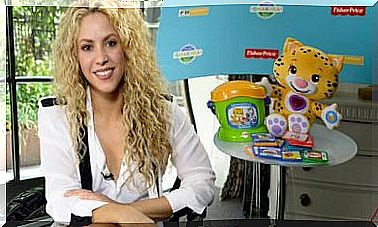The Language Of The Family Nucleus

The language of the family nucleus is the one we use to communicate with our children and relatives who are part of our home. This type of language is of great importance in the day-to-day life of each of the members of the family nucleus and determines a large part of the type of relationships both in the present and in the future.
Why is the language of the family nucleus important?
If a father or mother calls their child “stupid; weeping; slow; clumsy ”, etc., this action will become a form of abuse. Whether you have made a mistake or otherwise, the disqualification is totally unnecessary and, if it is the case, unsuccessful.
The same happens if, when communicating with our partner, in front of the children, the disqualification is constantly affected. Even if you are both laughing, it is not healthy for you to insult each other.
Interpersonal relationships suffer when disqualifying adjectives are used: “silly, stupid, idiotic, lazy” and the like, regardless of the tone and the final message. And although it may seem like a small matter, it actually has a great impact on everyone’s emotional health.
The quality of the language of the family nucleus
Let’s stop for a moment and think: Is it really necessary to disqualify the child every time we address him? What contribution does the fact that we call him in this or another way bring to denigrate him or make fun of him? Except for embarrassment and emotional pain, disqualification is not an appropriate teaching strategy.

Verbal punishment does not bring results or bring real improvements to our lives. On the contrary, it only manages to instill fear, deepen insecurities and drive a wedge in relationships from an early age. And, although this may not be easily seen with the naked eye, it does happen.
Family language should not be based on name calling. Not even “as a joke.” It must be based on affection and all those positive aspects of which human beings are capable when expressing ourselves. No one is born learned and we all need affection. Especially when we are corrected or guided in something that costs us.
Words with double meanings such as “imp” or “junk” imply a type of message that, unconsciously, sends a double message to children. On the one hand, they are reprimanded and, on the other, an attempt is made to soften (by means of the diminutive) the reprimand.
Pejorative language does not add, it subtracts
Disqualification should not become a parenting methodology or lifestyle. Certainly, human beings are not perfect and it can be difficult to handle certain emotions in certain contexts. However, we are perfectible beings; that is, capable of improving to find the common good.
Pejorative language can make unfavorable situations worse, therefore, it does not add, but subtract. It promotes insult, prejudice, discrimination, rivalries, slights and damages in general.
If children acquire a vocabulary derived from this type of language, they will have problems with their environment and will interact in an inappropriate way, which will generate poor relationships.
In these cases, the important thing is to know how to correct in time and, above all, to set a good example. It is useless if we scold the child for using a bad word or a negative expression if we are going to use them on our own in their presence. We must be consistent with our actions.
Tips for making good use of the language of the family nucleus
In the first place, the ideal is to avoid misuse of the language of the family nucleus. Insults, threats and any other form of verbal punishment or abuse should not be used. However, if it has already happened and we want to solve it, it is best to apply the following strategies and maintain them over time.
Of course, if these are difficult or do not provide results, it is necessary to consult with a family psychologist or a psychotherapist. Both professionals will be able to better guide us in the process and indicate which are the appropriate tools and how they should be applied to achieve the desired objectives.

To make good use of the language of the family nucleus, it is necessary to:
- Remove disqualifiers immediately. With our partner, children, relatives and others. Every time we feel the urge to say something, we must stop for a moment and think about the consequences that our way of expressing ourselves will bring.
- Learn to breathe deeply before speaking (it is not a cliché phrase, but a powerful strategy if we learn to use it in our day to day life).
- Try to replace expressions of abuse with affection. We do not need to be the most cloying but we must get used to expressing more positive emotions and feelings, since these do add benefits to everyone.
- Remember that tomorrow, if we have used an unhealthy family nucleus language, our children will not have a good concept of us, as parents, and will distance themselves in one way or another.
- Knowing how to recognize your own mistakes, take responsibility and apologize (whenever necessary). In this way, we will begin to create a healthier environment for ourselves and those around us.
Remember that it is very important that you know how to make good use of the language of the family nucleus. Not only so that your children have a good reference for interpersonal relationships but also so that they have a true well-being, from an early age, that allows them to grow and develop healthily.










